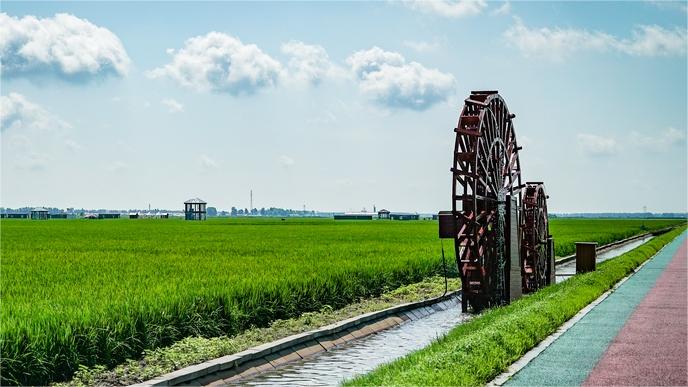Nation to back financial institutions

Exhibitors promote coffee products during an expo in Nairobi, Kenya earlier this year. (LI YAHUI/XINHUA)
China will encourage and support financial institutions from both its market and Africa to strengthen exchanges and innovate financial cooperation models in the years ahead, said government officials on Tuesday.
Speaking ahead of the 2024 Summit of the Forum on China-Africa Cooperation, which will be held in Beijing from Sept 4 to 6, Shen Xiang, director of the Department of Western Asian and African Affairs at the Ministry of Commerce, said the Chinese government will focus on diversifying financial products and supporting cooperation between China and Africa in areas like green development, the digital economy and the growth of small and medium-sized enterprises.
Dismissing certain countries' "debt trap" narrative in Africa, Shen said that based on a study recently released by the International Monetary Fund, commercial bonds, and multilateral debt accounted for 66 percent of Africa's total external debt in 2023, while China-Africa bilateral debt made up only 11 percent.
Addressing a news conference in Beijing, Shen said this means that China has never been the main creditor of Africa's debt. Some parties have used the issue of African debt to make baseless accusations. Their objective is merely to tarnish and disrupt China-Africa cooperation.
"China has actively explored new models of financial cooperation with Africa, aiming to support the sustainable economic development of African countries," he said.
Tang Wenhong, assistant minister of commerce, said China will continue to prioritize expanding imports from Africa, leveraging its vast market to provide opportunities for African businesses.
The total trade value between China and Africa grew by 7.1 percent year-on-year to 1.98 trillion yuan ($277.25 billion) in 2023, statistics from China's General Administration of Customs showed.
Last year, China's trade with nearly half of African countries saw double-digit growth, demonstrating the robust vitality of China-Africa trade.
This momentum has continued in the first seven months of this year, with bilateral trade value rising 5.5 percent year-on-year to 1.19 trillion yuan, Customs data showed.
To further diversify its overseas sales channels, Keiper (Changshu) Seating Mechanisms Co, a Changzhou, Jiangsu province-based supplier of automotive seats, exported 222,000 auto seats and related parts to South Africa in the first half.
South Africa has focused more on vehicle assembly rather than the production of every component. Importing parts like seats allows South African manufacturers to assemble vehicles locally while leveraging the cost advantages of imported components, said Han Yanwen, a manager at the company's sales unit.
"China has a well-established manufacturing industry with economies of scale that allow for the production of auto parts at a lower cost compared to many other countries," said Han. "This cost-effectiveness makes it attractive for South Africa to import these components rather than produce them domestically."
Jiangsu province's trade with Africa totaled 111.34 billion yuan during the January-July period, up 27.5 percent year-on-year, data from Nanjing Customs showed.
Li Wentao, director of the Institute of African Studies, which is part of the China Institutes of Contemporary International Relations in Beijing, said that many African countries seek to diversify their economies beyond natural resources by developing all three key sectors of manufacturing, agriculture and services. China's expertise in these areas helps African nations to diversify their economic drivers.
By the end of 2023, China's nonfinancial direct investment stock in Africa exceeded $40 billion, making it one of the largest sources of foreign investment on the continent. Over the past three years, Chinese companies have created more than 1.1 million jobs locally in Africa, according to the Ministry of Commerce.
The economic and trade cooperation zones in Africa have invested in cover sectors such as agriculture, manufacturing, and logistics, attracting over 1,000 companies. These zones have made significant contributions to local tax revenue, export growth, and foreign exchange earnings.
Photos
Related Stories
- Interview: China-Africa agricultural collaboration boosts livelihoods transformation
- China, Africa trade sees steady growth in Jan.-July
- China, Africa embrace closer economic, trade ties
- Small commodity hub fuels China-Africa trade
- China-Africa economic, trade cooperation scaling new heights: official
- African envoys expect deeper ties with China
Copyright © 2024 People's Daily Online. All Rights Reserved.









